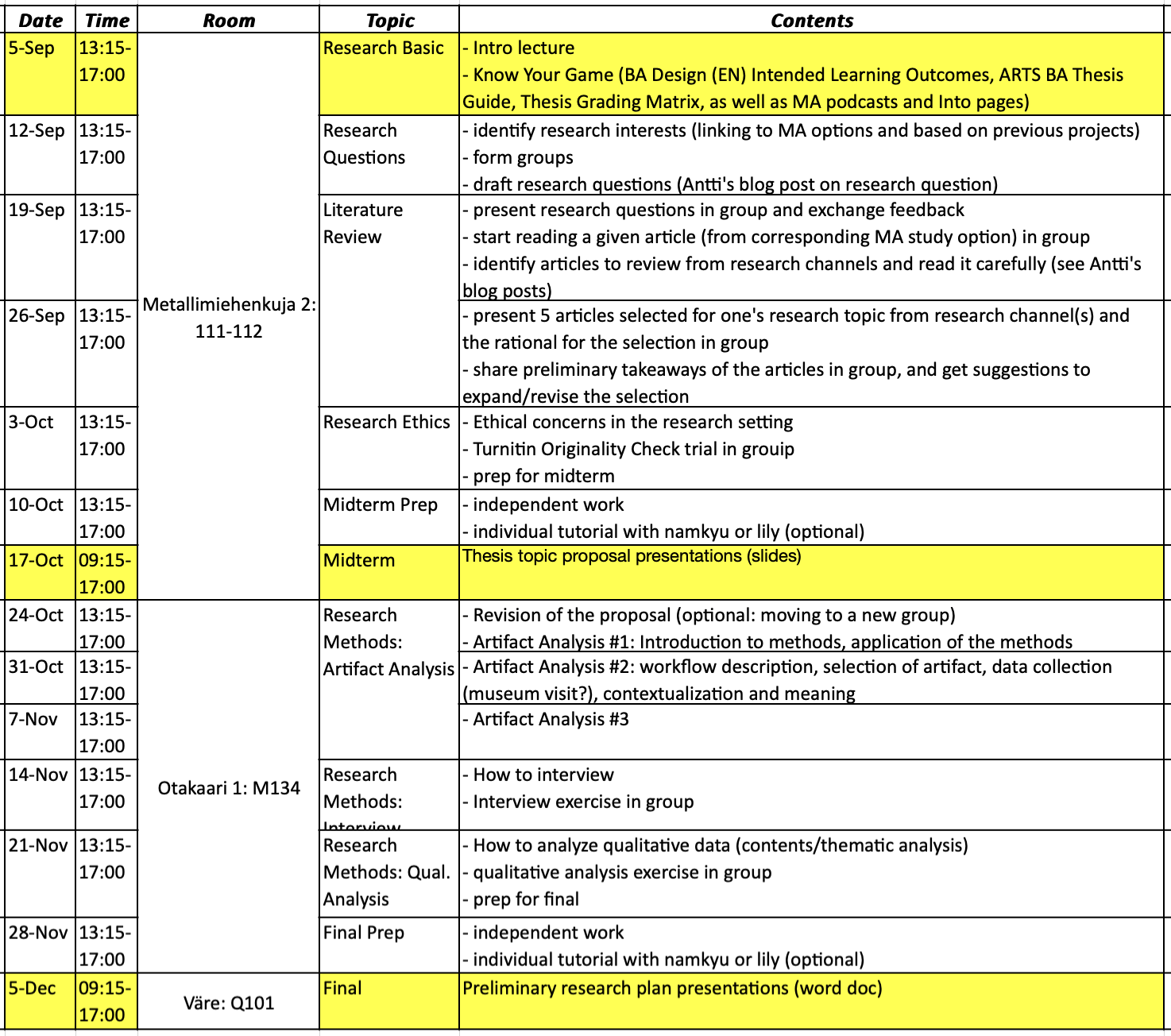ARTX-C1019 - Introduction to Research in Design and Media, Lecture, 5.9.2022-5.12.2022
This course space end date is set to 05.12.2022 Search Courses: ARTX-C1019
Topic outline
-
Welcome to Introduction to Research in Design and Media. As the course name is too long, let's just refer it as "IRDM" from now on. See the following key info about the course.
Engagement / Participation / Communication
MyCourses page plays the central role for communication throughout the course. In this MyCourses page, you can:
- find useful resources about the course and materials from classes (slides, links, etc.); and
- submit your assignments.
The course is primarily running on-site. However, with permission, you can join remotely. Contact Namkyu to get the Zoom link. You are not allowed to share the link with your peers (without permission).
Remote participation is allowed if you have:
- general illness (send Namkyu a copy of the formal letter);
- COVID-19 suspicion (get yourself antigen/home test and send a photo of the result asap to Namkyu); or
- other important conflicting schedules (send Namkyu an email to discuss your situation well in advance).
Self-attendance check: For each session, mark yourself attended.
Course Presemo (used throughout the course to give general feedback anonymously and exchange comments in presentation setups): http://presemo.aalto.fi/irdm/
Responsible teachers' email addresses: namkyu.chun(a)aalto.fi, lily.diaz(a)aalto.fi
Group work: In this course, you work for your own thesis and you are graded individually. However, you are working in a group to give peer support throughout your thesis process. Groups are formed based on relevant domains for your research and thesis topic. You may change your group after midterm (if justifiable).
Options for 4 or 5 ECTS: By default, you get 4 ECTS from this course. For those who want to get 5 ECTS out of this course, please contact Namkyu by 7 September (Wed). The workload will be adjusted (same assignments but more reading and writing).Course Schedule

Download the schedule as an image file: https://mycourses.aalto.fi/pluginfile.php/1774350/course/section/206526/IRDM%20course%20schedule.png?time=1660544359063
The schedule is subjected to have minor changes. If any changes occur, responsible teachers will notify beforehand.
- find useful resources about the course and materials from classes (slides, links, etc.); and